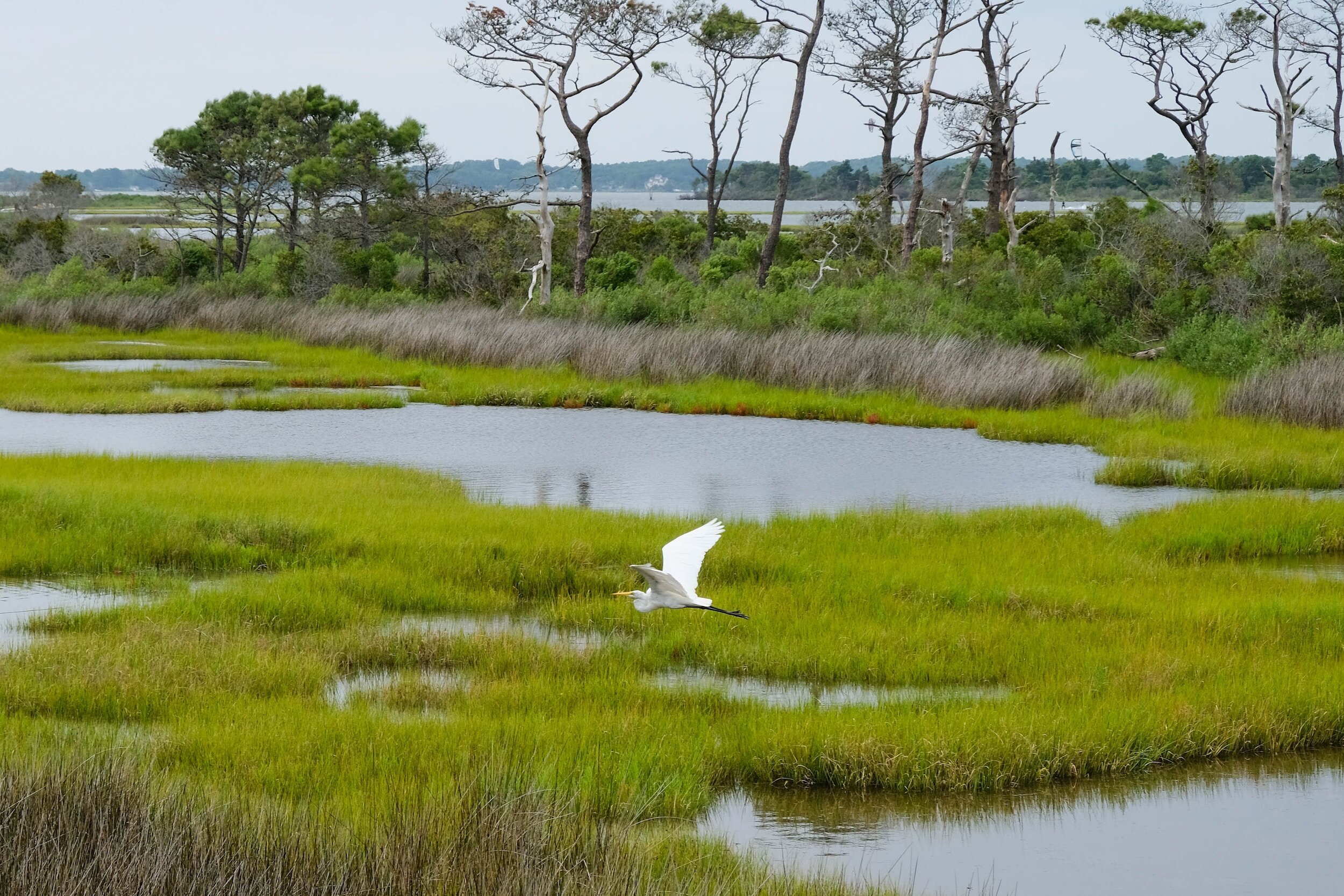
Chesapeake Bay Preservation Act
Chesapeake Bay Preservation Act (CBPA) Updates
Timeline
In 2020, the Virginia General Assembly passed HB 504, amending the Chesapeake Bay Preservation Act (CBPA) to include "coastal resilience and adaptation to sea-level rise and climate change" as a key objective. This legislative update marked a significant political shift, providing Virginia localities with a powerful tool for enhancing climate resilience and addressing the impacts of rising sea levels. The amendment initiated new regulations aimed at helping communities adapt to climate change, while continuing to safeguard the Chesapeake Bay watershed.
Draft Regulations Released
On November 25, 2020, the State of Virginia issued draft regulations reflecting the 2020 CBPA amendments. These regulations were presented to the Virginia State Water Control Board on December 9, 2020, and a 90-day public comment period was opened from February 1 to May 3, 2021. Public feedback, including Wetlands Watch’s contributions, was an essential part of this process. Submitted comments can be viewed here.
Regulations Adopted
On June 29, 2021, the Virginia State Water Control Board adopted critical amendments to the CBPA regulations. These amendments formally incorporated climate adaptation measures and emphasized the preservation of mature trees, recognizing their role in enhancing coastal resilience and mitigating climate change impacts.
Draft Guidance Released
On September 6, 2022, the Virginia Department of Environmental Quality (DEQ) released the draft guidance document, "Chesapeake Bay Preservation Act Guidance: Sea Level Rise and Climate Change Provisions," opening a 30-day public comment period. Wetlands Watch, in partnership with the Chesapeake Bay Foundation, Southern Environmental Law Center, and Environmental Defense Fund, submitted a joint comment letter addressing key concerns and recommendations related to the guidance.
Stakeholder Responses
Wetlands Watch: Submitted a detailed comment letter on the draft regulations and drafted bulleted comments for stakeholder review.
Joint Comments: Wetlands Watch, the Southern Environmental Law Center, and the Chesapeake Bay Foundation submitted a joint letter with redlined text to the Secretary of Natural Resources and DEQ staff. A joint letter from the Chesapeake Bay Foundation and Wetlands Watch addressed key recommendations for aligning the draft regulations with the Bay Act’s intent.
Other Responses: The Hampton Roads Planning District Commission and Williams Mullen also responded to the proposed amendments. The Chesapeake Bay Foundation hosted a webinar on the proposed regulations, which is available for viewing.
Public Outreach
Public engagement has been central to the CBPA amendment process. A public meeting held on January 27, 2021, and a CBPA regulation webinar hosted on October 29, 2020, provided platforms for community input and information dissemination. Recordings and materials from both events can be accessed online:
View the January 27, 2021, public meeting [here] and download the slides [here].
View the October 29, 2020, CBPA regulation webinar [here].
Guidance Workgroup
The Resilience Guidance Document Project was a collaboration between the Virginia Institute of Marine Science (VIMS), the Virginia Coastal Policy Center at William & Mary Law School (VCPC), and DEQ. This workgroup was tasked with developing detailed guidance to help implement the climate adaptation provisions under the CBPA. The group’s research, modeling, and analysis efforts were key to ensuring the effective integration of resilience measures into local planning processes. Read more about the project [here]. The final product of this Workgroup was the mapping of the future locations of the Resource Protection Areas (RPAs), as they move landward with sea level rise. Read the final report (2022) here and view future RPA areas for 2050 on Adapt VA’s comprehensive web tool here (under Shoreline Management —> CBPA).